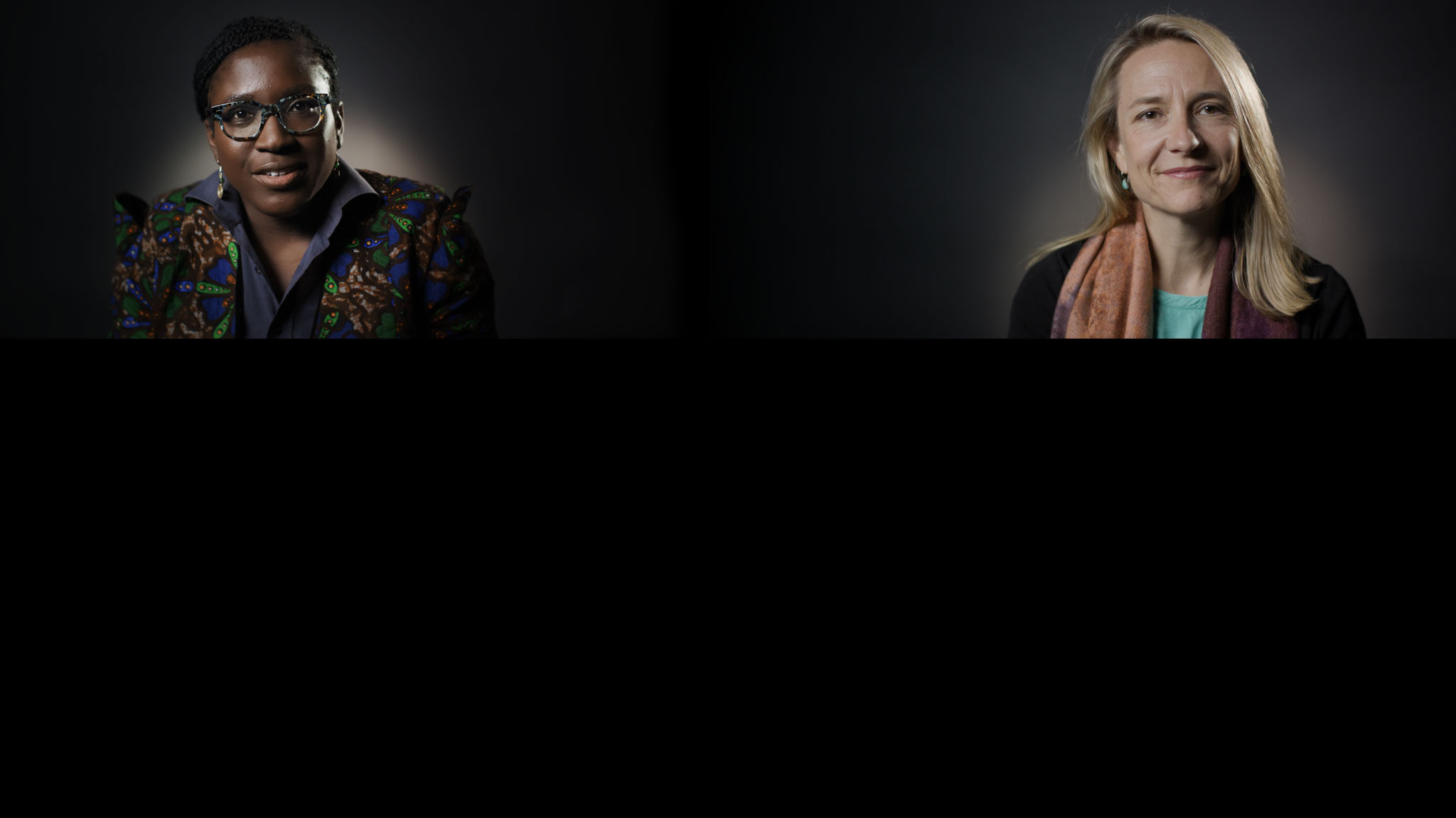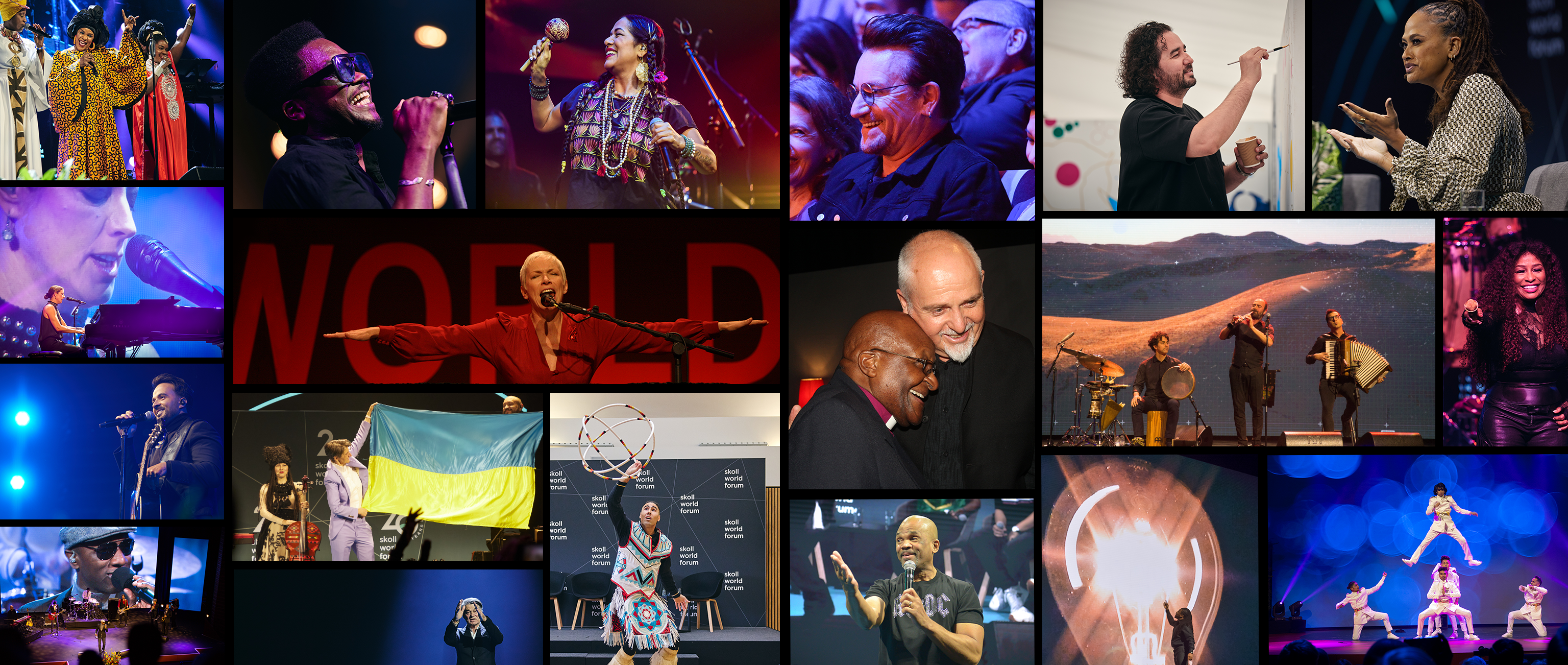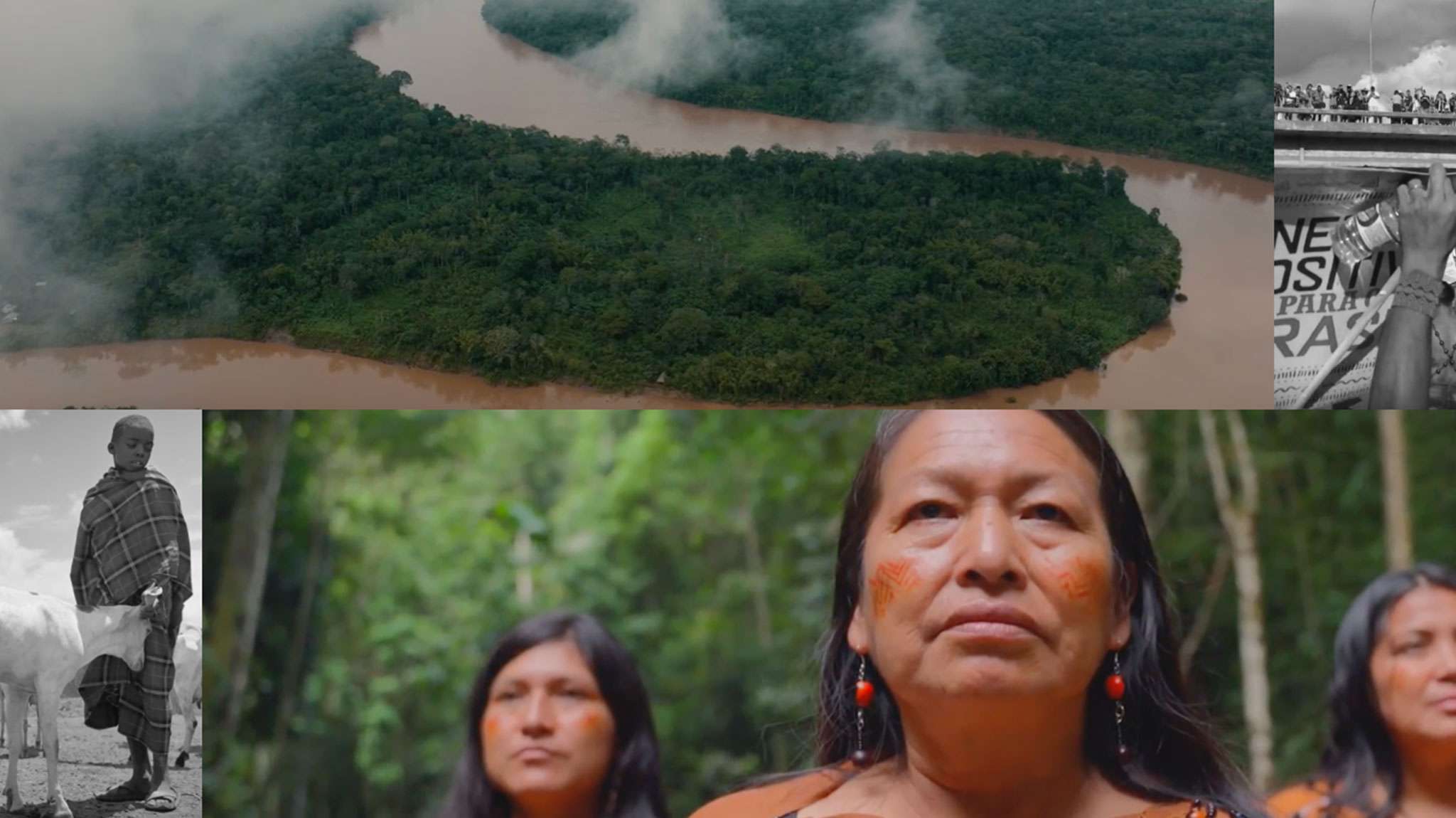Introduction (00:02):
Welcome to Role Models for Change, a series of conversations with social entrepreneurs and other innovators working on the front lines of some of the world’s most pressing problems.
Françoise Moudouthe (00:13):
Okay. So, my name is Françoise Moudouthe. I’m a Pan-African feminist with roots in Cameroon. I’m the CEO of the African Women’s Development Fund, which is a fund that is at the intersection of philanthropy and feminist movement building in Africa.
Matthew Beighley (00:27):
Why is there a need for this fund? What’s the problem?
Françoise Moudouthe (00:31):
Yeah. So, about 25 years ago, three fantastic African feminists came together with the realization that the people who are actually best placed to bring about gender justice, that’s feminist activists and women’s rights activists, on our continent are the ones who are doing the most with the least, the least money, the least recognition, the least support, and the least connection, and the least access. And so, there was a problem of having philanthropy on one side with the funding, with the access, with the power, but none of, really, the understanding of the issues. And they were sharing those resources through the wrong channels, and those resources were not getting to the actual changemakers.
(01:25):
So, those three founders came together with the idea of an African Women’s Development Fund, which was with the purpose of making sure that people from movements, from feminist movements, from the communities that are experiencing oppression, can raise those funds and redistribute them to those changemakers, the feminist activists, in the ways that really help them, that really empowers them, and that is adapted to the priorities and the needs that they have. So, it’s really, as I say to my child, bring the money in, bring the money out. We need to bring the money out to the people who most are best placed to do the change, but also that we are aware of what they need and how they need those resources to come to them.
Matthew Beighley (02:18):
Can you give me an example of someone who would receive these funds and something that they would do with it?
Françoise Moudouthe (02:25):
So, I’d like to speak to the fact that in addition to just moving money and resources, we are also accompanying our partners in a way that is more holistic. So, technical assistance, of course, but also investing in the resilience of the organizations, but also the well-being and the connection among the leaders. And to that, I’d like to share the example of one of our partners in Burkina Faso, and specifically the leader of that organization. I happened to have known her through various areas of work for about 12 years. And from the very first day I saw her, she said, “I’m tired. I’m pushing. I’m pushing. They’re pushing back. We don’t have resources. I just feel like I’m doing this whole thing on my own.” And she was perpetually tired.
(03:24):
So, when I joined the African Women’s Development Fund, I was so excited to see that in addition to grant making, one of the accompaniment programs that we had was focused not only on the solidarity but also on the care of those leaders who are really facing the isolation and the burnout that comes from fighting for gender equality in the areas where they work. So, one of the programs that we have is called Flourish. And I love this program because it’s taking away for a few days these leaders and give them a space to recharge. It’s like a healing retreat. Because we think about feminist activists as the healers of society, but who heals the healers?
(04:17):
And that Flourish retreat is one of the ideas from one of the people in our team, even before I joined, to say, “Let’s just find a space, bring them to a beautiful place near the sea or in nature, and bring healers, bring psychotherapists, bring yoga teachers, and just let them to be together. Not to talk about as experts, but to show up as humans.” And one of the things that I heard that really touched me in this forum is, “Humans first, leaders second.” And that’s really very much at the core of what we’re trying to do and put them together.
(04:54):
And once we had a plan, this year, to do another one for Francophone African activists, who very often don’t have access to such spaces, I said, “We’ve got to get her in.” And so, she went, and she came back. I saw her in another meeting just last month, and I said, “So, how was it?” And she said, “I came out a new person. I think I can do another 10 years.” I was so inspired and grateful that we have the possibility, the energy, the creativity, and the resources to provide that.
Matthew Beighley (05:29):
Is there an example of an investment or helping someone financially with their work that you can cite to? I think it’d be good to get two examples, and I’d be very curious to hear what was the actual work that they were doing.
Françoise Moudouthe (05:42):
So, I think what I want to speak to as an example is an example of one of our partners in Uganda. It’s a youth-led queer rights group, queer-led, youth-led in a country where queer rights are being really smashed, right? There’s an anti-LGBT bill that was passed last year in Uganda. And this group really struggled to get funding, because they are not registered, because it’s dangerous to be registered, and because when they got funding, it was very small funding because they were a rather young group, and there is a true trust deficit, especially in Africa.
(06:33):
So, I met them at a meeting that we were organizing for the African Feminist Forum, and I see this group of three young people just rushing towards me.” Are you Françoise? Are you Françoise?” And I’m like, “Yes.” They said, “We just wanted to say thank you, because we applied for a small grant, and you gave us three times the amount we asked for, and no one ever trusted us that much.” And that really blew my mind. I was so grateful again, but also so inspired. Because we often hear about risk. This is the typical too risky group.
(07:20):
And so, I’ve been following the work. And in this context where Ugandan queer people are being really tracked down, they’re put at risk, violence is increasing, they’ve been able to create a safe space for young queer people who are cast out of their families and just create space for them. And they wouldn’t have been able to do that if we’d given them the money they had asked for. And that reminds me that as people who believe in the power of our partners, we need to take the risk that big-picture philanthropy is not ready to take, because we can’t afford not to take that risk. And so, I’m so glad there was a great reminder of that.
Matthew Beighley (08:14):
Talk to me about just the scale of this. How much money were you able to give out last year?
Françoise Moudouthe (08:21):
So, I was privileged to join the African Women’s Development Fund when it was turning 20, and so that was a great moment for us to take stock. And I was so excited to see the growth of the organization. So when AWDF was created, it started out with a budget of $350,000. Last year, our budget was over 20 million US dollars. In this 24 years, that growth. I’m excited about it because we continue to make sure that the most of that funding goes directly to movements. At least 70% goes directly as grants, plus another 20 or so going as non-grant making support, convenings and things like that.
(09:14):
So, that means that money is going directly to movements, it’s going directly to communities, and that’s very exciting for me. In the first 22 years of our existence, the African Women’s Development Fund has provided around 68 million US dollars in grants to 150 or so organizations across the African continent, and I think that’s fantastic. And I’m worried, because even at our best, we still are only able to fund about 12 to 15% of the eligible demands for grants that we receive. So, that means that even as we do our best, we are just not matching the demands and what needs to be done out there. There’s a lot of need and there’s a lot of ideas. What there isn’t is a lot of money and there’s not a lot of trust.
Matthew Beighley (10:12):
Are you hopeful that things are moving in the right direction, or is it getting harder?
Françoise Moudouthe (10:24):
Okay. I think things are getting harder. I think that things are getting harder. First, we are in spaces like the Skoll Forum, constantly excited by innovation, and so am I. I love innovation, but I’m worried, because as we are focused on innovating, very few of us remain focused on holding the line, preserving the rights that we secured 10 years ago, 20 years ago. We are taking them for granted.
(11:03):
But today, abortion rights, the wins that we thought we had, they’re gone, just like that. In The Gambia right now, Parliament is considering decriminalizing female genital mutilation. We thought we’d won that fight, right? So, because we have this deficit on attention on holding the line, I worry, I worry a lot about that. I worry also that the anti-rights, anti-gender movements are making great gains. They have a lot more funding, they have a lot more agility, and they feel sometimes that they’re a lot more effective than us. I worry about that.
(11:52):
So, in that sense, I think things are getting harder, but that doesn’t mean I’m not hopeful. So, that’s why I was hesitating when you’re asking the question, because I’m hopeful and inspired by the energy of those who are fighting back: the activists, the academics, the thinkers, the doers, and to a large extent the progressive funders, especially in feminist philanthropy. I’m hopeful because they continue to find that balance between creating, innovating, and holding the line. And I’m inspired by them, even though I know that they do so at a great cost, personal cost. They pay with their rights, their lives, their livelihoods. So, it’s tough times, I think, for feminist activism, especially in Africa, but I think, really, around the world. But vision, the courage, the boldness of activists, especially feminist activists, will always give me hope.



